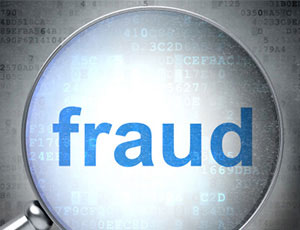Certified Fraud Examiner Bryant Truitt, has seen it all. As founder and CEO of Brytan and Associates, a Texas-based firm specializing in internal healthcare practice due diligence, he’s built a career in helping dental practices nationwide identify and stop employees who commit fraud and/or embezzlement.
In his 20-plus years of working with dentists and dental practices, his team’s quiet, non-threatening, on-site research have uncovered millions in losses due to employee actions. Their work has also helped stop these criminals from just taking their tricks to other practices. It goes without saying, Truitt has learned a few things about the type of individual who will find opportunities to take advantage of unsuspecting employers, or worse, bilk them for big bucks. He shares insights on how doctors can sniff out the potential for wrongdoing, with hopes of helping put it to an end, even before it starts.
FRAUD AND EMBEZZLEMENT FAST FACTS
DEFINITIONS
Fraud: Intentional perversion of truth for the purpose of inducing another in reliance to obtain a valuable thing belonging to him/her; a false representation of a matter of fact whether by words or by conduct.Embezzlement: The appropriation of property or money by a person to whom it has been entrusted, or to whose hands it has lawfully come.
The number one reason people commit fraud and embezzlement is a hidden, pressing financial need. In dental practices, that person is often a trusted senior employee with lots of responsibility.
The number one reason dentists lose thousands and thousands of dollars in profits is due to the unauthorized actions of employees especially write-offs, adjustments, discounts and refunds.
Fraudsters and/or embezzlers usually use more than one scheme at a time and the same practice could be re-victimized more than once. A practice can experience waste and abuse by employees as well.
The Unexpected Profile of an Employee Embezzler
Enthusiastically takes authority & responsibility
Possesses a vast knowledge of computers
Knows compliance, laws, etc.
Dislikes change they can’t control
Wants to handle the dentist’s private & personal business
Doesn’t take vacations
Has or wants lifestyle changes
Has family crises
Empire builder & indispensable to the practice
Against change unless they control the changes
Requires they have full authority & responsibility
Is secretive, wants a private office with a door
Wants computer control
Overly eager to work a lot of overtime hours
Wants to do the hiring
Wants to do everything
It’s important to note that you will have great staff members who exhibit these characteristics and are not likely to be criminals, or planning to commit a crime. The difference, according to Brytan & Associates, is that doctors should beware of a seemingly model employee who exhibits several of these characteristics. Because what is indisputable is that, in most cases, a dental practice perpetrator is someone you and your team will least suspect.
5 Simple Precautionary Measures to Protect Your Practice
1. Have all banking and retirement statements sent to your home and designate “read only” for your CPA.
2. Have all personal mail sent to your home or to PO Box; not to the office.
3. Avoid using an employee as a signatory on your practice’s bank checks.
4. If you have practice credit cards, cap credit limits and designate the businesses at which purchases on that card can be made. And always review your monthly statements.
5. HIPPA laws require that all healthcare providers set password and security levels for their computers and software. Carefully select who will have administrative level access. Brytan and Associates recommends that, if possible, only the doctor have the highest level of access.
Truitt warns not to limit yourself to these precautionary measures alone because perpetrators, conditions and practices are different, however, by at least covering the basics you’ll be better equipped to protect your practice.
For more information, visit https://brytanassociates.com/
Source: Brytan & Associates, (210) 241-6329)














